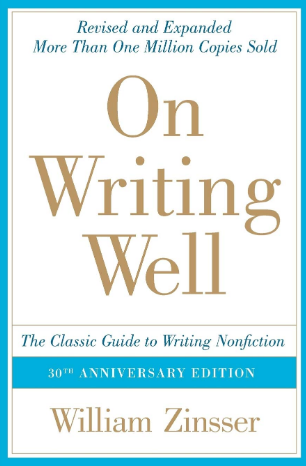If you’re searching for strategies for how to write better, it’s the kind of writing advice you’ve likely seen.
Ignore grammar.
You don’t need to pay attention to parts of speech to write better.
If you have great content that solves a problem, you’re good to go.
See, there’s some truth it all of that.
Great content doesn’t necessarily need to stick to the strictest grammar rules. Just because a sentence ends with a preposition doesn’t mean it’s any less engaging, right? Surely a dangling participle or two can’t destroy an otherwise well-written piece? (UPDATE: My thoughts on the role of grammar are always evolving. I’ve discovered the work of Cecelia Watson, scholar and historian,. Waston makes the case for how grammar acts as an instrument of control. This piece explores how we use grammar to invalidate opinions and helps shape a practical approach to grammar’s place in modern written text.)
But, here’s the thing. If you want to write better, you need to gain a handle on grammar. Not because better grammar automatically creates better content. The most important reason grammar matters is because it makes your meaning clear. If your audience shares a common understanding of certain parts of speech and sentence structures, for instance, grammar makes your content easy to read.
Let’s dive in.
Writing is a Craft
A lovely quote that inspired my writing journey comes from William Zinsser’s On Writing Well:
The point is that you have to strip your writing down before you can build it back up. You must know what the essential tools are and what job they were designed to do. Extending the metaphor of carpentry, it’s first necessary to saw wood neatly and to drive nails. Later you can bevel the edges or add elegant finials, if that’s your taste. But you can never forget that you are practicing a craft that’s based on certain principles. If the nails are weak, your house will collapse. If your verbs are weak and your syntax is rickety, your sentences will fall apart.
William Zinsser
Let’s unpack this.
Zinsser’s meaning is that writing is based on principles we need to understand. Once we do, we have the tools to write better. Our reader no longer needs to strain to follow long, run-on sentences or figure out who’s doing what because our sentence structure is confusing.

Now, I’ve had my own struggles with writing rules. Even as a professional, I’m no grammar expert. When I started my career in the newsroom, I focused on finding and telling stories. I stayed away from sentence structures I wasn’t sure about. And my writing lacked variety as a result.
It was only really when I started pursuing a freelance writing career that I saw the importance of grammar and the technical elements of writing. When you know how to use commas properly, for instance, you have the confidence to play with sentences. They can be short. They can be longer and more complex. Change the rhythm of your writing with punctuation.
I loved this Lewis Thomas quote from Brain Pickings:
The commas are the most useful and usable of all the stops. It is highly important to put them in place as you go along. If you try to come back after doing a paragraph and stick them in the various spots that tempt you you will discover that they tend to swarm like minnows into all sorts of crevices whose existence you hadn’t realized and before you know it the whole long sentence becomes immobilized and lashed up squirming in commas. Better to use them sparingly, and with affection, precisely when the need for each one arises, nicely, by itself.
How to Write Better Day by Day
For the best results, pick a single aspect of grammar. Focus on learning that one thing and move on to the next when you’re done.
So, my biggest problem was uncertainty around the comma. I committed to a daily study to conquer my comma troubles.
By reading books like Elements of Style and going through Coursera’s grammar course, I gained a deeper understanding of the comma. I practiced what I had learned, writing essays and blog posts. (Here’s an example of the system I used to write better over the past few years.)
Fortunately, there’s tons of resources to help you master almost new skill online.
Here’s the publications, sites, and books I rely on to write better:
- Elements of Style
- It Was the Best of Sentences, It Was the Worst of Sentences: A Writer’s Guide to Crafting Killer Sentences
- On Writing Well
- Purdue Writing Lab
- BBC’s 6 Minute Grammar
As you work through the material, you’ll find it becomes easier to express your ideas. You’ll spend less time struggling to structure you thoughts because you have a set of basic tools to get your words in the right order.
Featured image: Pablo
